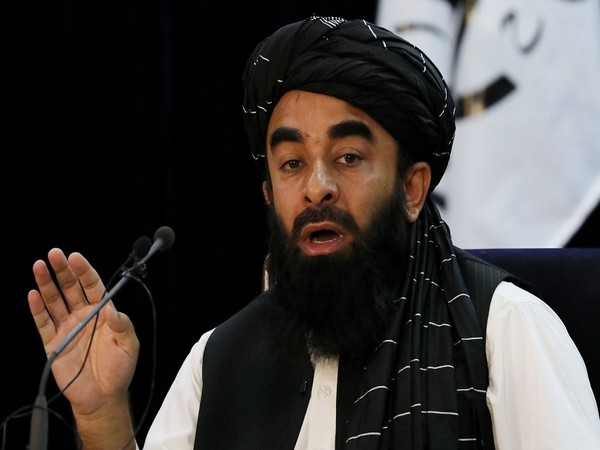US 'usurped' Afghanistan's USD 7 billion assets, claims Taliban
Taliban have accused the United States of having usurped the Afghan assets after they announced to release USD 3.5 billion of frozen money of Afghanistan as humanitarian aid for the poverty-stricken country.

- Country:
- Afghanistan
Taliban have accused the United States of having usurped the Afghan assets after they announced to release USD 3.5 billion of frozen money of Afghanistan as humanitarian aid for the poverty-stricken country. "The assets of the people of Afghanistan have been usurped by the United States," the Dawn quoted Taliban government spokesman Zabihullah Mujahid as saying.
"We consider it an invasion on the property of Afghans. The United States is not the owner of these assets," Mujahid said, while demanding that funds should be released "without any conditions". The United States on Wednesday announced to release of USD 3.5 billion of the total USD 7 billion frozen money of Afghanistan to the new "Afghan Fund" for humanitarian aid.
The US Treasury Department said it would transfer USD 3.5 billion in Afghan central bank assets into a new Swiss-based trust fund that will be shielded from the Islamic Emirate and used to help stabilize Afghanistan's collapsed economy. The new Afghan Fund, based in Geneva, will not provide humanitarian assistance, but will be put in charge of core central bank functions such as paying Afghanistan's international arrears and for its electricity imports -- and potentially for necessities such as printing currency.
According to CNN, two senior US officials, "The US is moving USD 3.5 billion to the new "Afghan Fund," but will not release the money imminently to an institution in Afghanistan because there is no trusted institution to guarantee the funds will benefit the Afghan people." "Instead, it will be administered by an outside body, independent of the Taliban and the country's central bank," the official said.
"The Fund may use assets to provide Afghan banking sector liquidity, keep Afghanistan current on its debt service obligations, support exchange rate stability, transfer funds, as appropriate to public Afghan financial institutions, or any other use for the benefit of the Afghan people that are approved by the Fund's Board of Trustees," said a US State Department official. The officials said that the transfer of the funds would depend upon two key factors- the responsible management of the bank and assurances that the funds will not be diverted to terrorists or criminals, CNN reported.
"We do not have that confidence today," a senior US official said, adding that, "at minimum, the Afghan central bank will need to demonstrate its independence from political influence and interference."After the Taliban seized the nation by force last year, the US froze Afghan reserves. Earlier this year, President Joe Biden signed an executive order allowing for the USD 7 billion in frozen assets from Afghanistan's central bank to fund humanitarian relief in Afghanistan and compensate victims of the September 11, 2001 attacks.
Since then Kabul's new leaders have been courting Washington to unlock the aid cash as Afghanistan has been lashed by a winter food crisis, economic free-fall and devastating earthquake. The Taliban ruled Afghanistan, at the time of the September 11 attacks, harboured Osama bin Laden, the head of the Al-Qaida terrorist network and mastermind of the US attacks.
A US-led invasion of Afghanistan weeks after the attacks overthrew the Taliban after they refused Washington's demands to surrender Bin Laden. The US withdrawal from Afghanistan last August ended the nearly 20-year war, but the United Nations and other international relief groups say Afghanistan faces one of the world's worst humanitarian crises, which stems from more than four decades of conflict and natural calamities.
More than half of the country's poverty-stricken population, or an estimated 24 million Afghans, face an acute food shortage and some one million children under five years of age could die from hunger by the end of this year, according to UN estimates following the US withdrawal from the country. (ANI)
(This story has not been edited by Devdiscourse staff and is auto-generated from a syndicated feed.)
ALSO READ
ANALYSIS-Climate verdict for Swiss women a warning for European states, oil industry
European court ruling puts cautious Swiss in climate bind
BRIEF-Swiss International Air Lines Suspends Tel Aviv Service - WSJ
US and Iran had contact through Swiss intermediaries ahead of attack, US official says
Swiss vote to ban swastika in crackdown on extremist symbols










